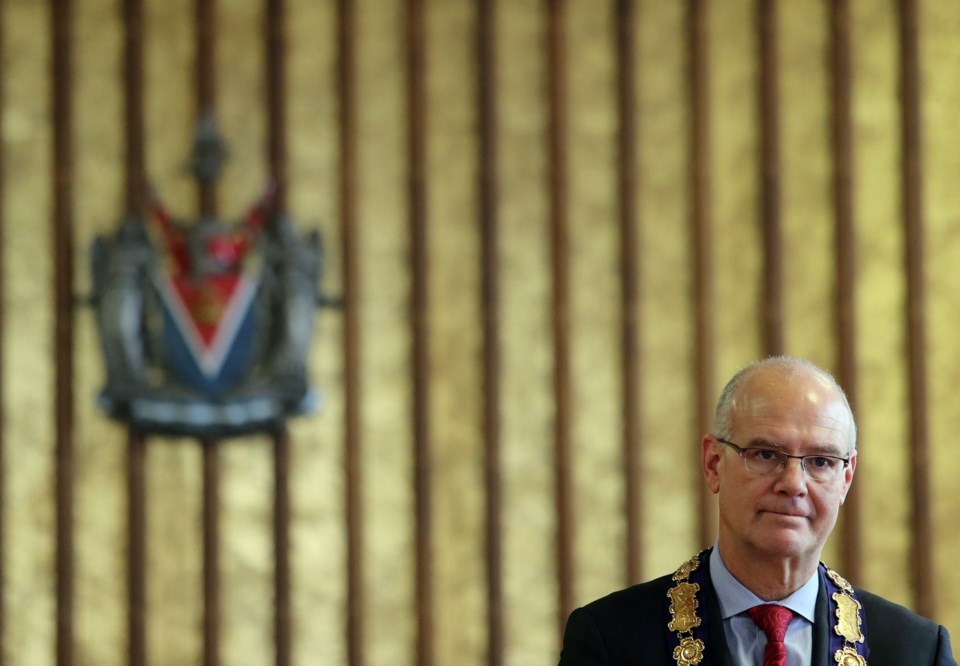Some of the increased profits resulting from relaxed liquor laws should come back to municipalities for increased liquor enforcement, addictions services, late-night transit and policing, Victoria council says.
Victoria Mayor Dean Fortin will write to the province, asking it to commit more funds toward addiction and treatment services, policing, liquor enforcement and late-night transit.
B.C.’s recent liquor policy review will bring about several changes, including:
• permitting the sale of alcohol in grocery stores;
• allowing minors into pubs and bars with parents during certain hours;
• allowing permanent offsite tasting rooms for local manufacturers;
• and, loosening drinking rules at public events.
“One of the ideas was that much like how traffic- fine revenue is returned to municipal police forces, [council would like to see that] any revenue generated through liquor fines be returned to municipal forces to pay for some of the costs of policing associated with alcohol.”
After being briefed on the changes, councillors had mused about possibly imposing a per-drink levy to offset additional costs.
Fortin said imposing such a tax is not within the city’s jurisdiction.
“We can’t charge per drink because that’s essentially a sales tax and a sales tax is the strict purview of the provincial government,” Fortin said.
But, he said, the city charges a business licence fee that includes a levy based on how many licensed seats an establishment has.
Council can raise that levy to offset additional costs associated with the new regulations.
“So that’s one of the opportunities to explore that and it starts with sitting down with the industry,” Fortin said. “We certainly recognize that if we did move that way then the expectation is it would flow to the costs [associated with liquor sales].”
There are more than 30,000 licensed seats in the city, Fortin said.
“We currently spend about $150,000 a year extra for our late-night, great- night policing. So even a $3 [per seat] increase would help offset those costs. And it’s a bit of a user-pay type system, really,” Fortin said.
Council has asked staff for a report on various options.
Councillors also forwarded a resolution to the Union of B.C. Municipalities seeking support for the province to return a portion of increased revenues resulting from loosened liquor law for addiction and treatment services, inspection of liquor establishments, policing and late- night transit.



-thumb.png;w=120;h=80;mode=crop)